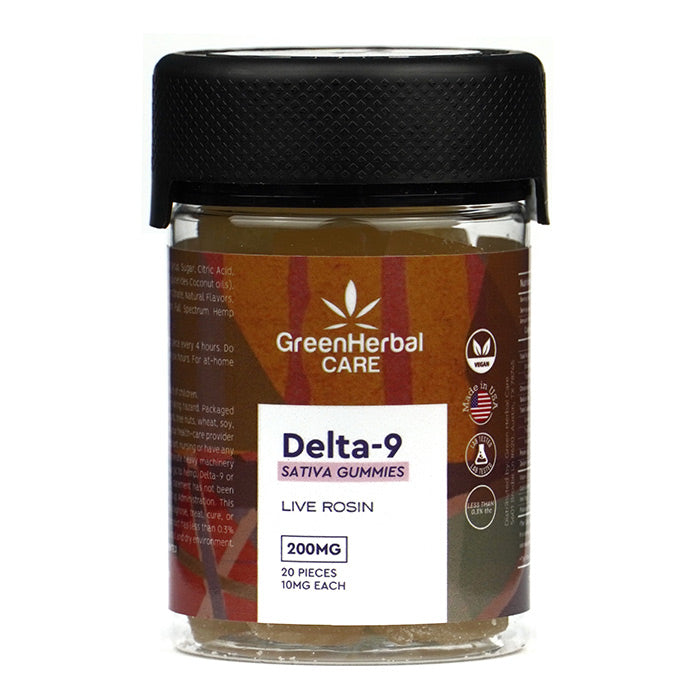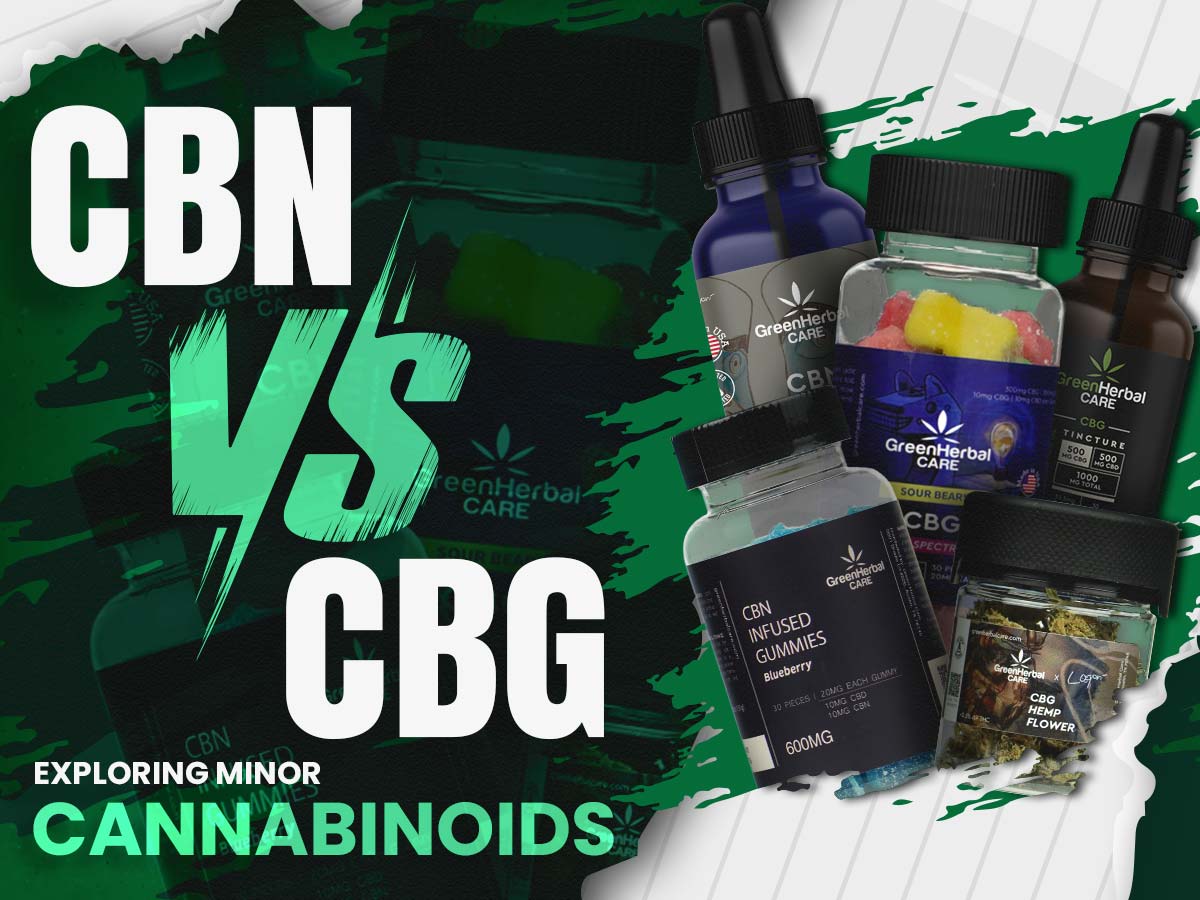CBD has long been the superstar of therapeutic cannabinoids, but it’s not the only one worth knowing. Over the last few years, CBN and CBG have gained attention for their unique benefits. But how do they compare? And are they really as effective as CBD?
In this guide, we’ll break down the differences, similarities, and practical uses of CBN and CBG—helping you make an informed choice whether you’re shopping for CBN products, CBG gummies, or full-spectrum hemp extracts.
CBN – The “Sleepy” Cannabinoid
CBN is often called the sleepy cannabinoid because of its potential sedative effects. Unlike most cannabinoids, it doesn’t naturally occur in large amounts in the hemp plant; instead, it forms as THC ages and oxidizes.
-
Effects: Mildly sedative in higher doses, may support sleep.
-
Receptor Binding: Binds to CB1 receptors, giving it a faint psychoactive effect only at very high doses.
-
Popular Use: People looking for natural sleep support often turn to CBN oils or gummies.
While scientific studies are still limited, anecdotal evidence suggests that CBN can be an effective natural sleep aid.
CBG – The “Mother of All Cannabinoids”
CBG (cannabigerol) is known as the mother cannabinoid because it is the precursor to many other cannabinoids, including THC, CBD, and even CBN. All cannabinoids start as CBGa before being converted by the plant.
-
Effects: Potential anti-inflammatory, neuroprotective, and mood-regulating properties.
-
Receptor Binding: Weak affinity for CB1 receptors and stronger affinity for CB2 receptors, which are primarily in the immune system and peripheral tissues.
-
Popular Use: Often used for pain relief, inflammation, and focus without sedative effects.
How CBG and CBN Work

Do you know about the endocannabinoid system (ECS)? It is a complex network extending throughout the body, comprising CB1 and CB2 receptors, enzymes, and endocannabinoids - compounds naturally produced. The ECS helps maintain homeostasis, influencing physiological functions like pain perception, appetite, sleep, and mood.
Adding CBN to your daily routine may help. It is structurally similar to the psychoactive THC since it is a product of THC degradation. Since THC binds to CB1 receptors in the brain, CBN also has a similar but milder effect.
CBG is the precursor to other cannabinoids like CBD, CBN, and THC. It interacts with the ECS but has a weak affinity for CB1 receptors, and since it is non-intoxicating, it does not get the user high. While it is possible to take CBG for sleep and enjoy its effects, it is better suited for those looking for analgesic and anti-inflammatory effects.
The Entourage Effect
Using CBN and CBG together, or as part of a full-spectrum hemp extract, may enhance their benefits. This is called the entourage effect, where cannabinoids, terpenes, and flavonoids work synergistically for stronger overall wellness effects.
CBN & CBG in Products
-
Full-Spectrum Extracts: Contain CBD, CBG, CBN, and a trace of THC (<0.3%), plus terpenes for maximum entourage effect.
-
Broad-Spectrum Extracts: Include CBD, CBG, and CBN, but no THC.
-
Isolates: Single cannabinoids like CBG isolate or CBN isolate for a targeted effect.
Products are available in tinctures, gummies, capsules, and oils, giving users flexibility in dosing and delivery.
Are CBG and CBN Legal?
In the United States, CBG and CBN are not yet scheduled as controlled substances and are thus legal to sell and own in most locations. This is unlike THC, which is a Schedule I controlled substance and illegal under federal law.
But note that the legality of cannabinoids is not uniform across all states, so it's best to verify your state's laws before purchasing or using CBG or CBN products.
How are CBG and CBN Produced?
CBG and CBN both occur in trace quantities in the cannabis plant, and therefore special extraction processes are required to separate these cannabinoids. There are a number of processes which are utilized to extract CBG and CBN from the cannabis plant, such as supercritical CO2 extraction, ethanol extraction, and steam distillation.
We utilize only supercritical CO2 extraction at Cannovia. Here's why:
CO2 extraction is generally considered the superior technique for extracting CBD, CBG, and other cannabinoids.
To start with, CO2 extraction is the safest and most effective means of extracting the cannabinoids from the plant. It utilizes carbon dioxide as a solvent, so there are no harmful chemicals or residue left behind. CO2-extracted products are therefore much safer and cleaner than products extracted using other techniques.
Conversely, steam distillation and ethanol extraction both employ potentially toxic solvents that can deposit impurities in the final product. Ethanol, specifically, has been reported to deposit impurities like chlorophyll and other plant materials, which can impact the taste and purity of the product.
And it gets better. CO2 extraction is far more effective than most others, as it can pull out a broader variety of cannabinoids and terpenes from the plant.
This results in CO2-extracted products that are stronger and have a broader variety of potential health benefits.
If you want the best quality CBD, CBG, CBN or other cannabinoid products, you should be looking for those extracted via CO2 extraction.
This process guarantees that you're receiving a safe, pure, and effective product that provides the greatest benefits for you and your family.
Which One is Better: CBG or CBN?
Choosing CBN or CBG depends on your goals:
-
For better sleep: CBN is likely the better choice.
-
For pain, focus, or inflammation: CBG may be more effective.
For overall wellness: Consider full-spectrum or broad-spectrum products to benefit from the entourage effect.
Does CBN Show Up On a Drug Test?Bottomline: CBN Vs CBG
Both CBN and CBG offer promising wellness benefits and work best when used thoughtfully. While CBG may be more helpful for pain and inflammation, CBN is ideal for sleep and relaxation. Using them together, or as part of a full-spectrum hemp extract, may provide the best overall results.
Remember, cannabinoids do not replace professional medical treatment, and effects may vary from person to person. Always consult a healthcare provider before starting a new cannabinoid wellness routine.
Frequently Asked Questions
What is better, CBN or CBG?
Cannabinol (CBN) and cannabigerol (CBG) offer unique benefits. They aren’t inherently better than one another. CBN has potential sleep-inducing properties, which may help sleep better, whereas CBG’s anti-inflammatory properties may help against inflammation and chronic pain symptoms. The better choice depends on an individual’s needs and preferences.
What is CBG best for?
CBG is known for its potential benefits, like its anti-inflammatory properties and gut support. It may also help relieve discomfort, provide neuroprotection, and fight bacterial infections. According to some studies, CBG may benefit those with inflammatory bowel disease, glaucoma, and other similar conditions.
What is CBN CBD CBG good for?
Each has unique therapeutic benefits, like CBN can be sedative and help in relaxation and sleep, CBD’s analgesic, anti-inflammatory, and anxiolytic effects may help combat anxiety and pain, promoting overall wellness, and CBG may be an effective natural solution for inflammation and pain relief, supporting neuroprotection.
Does CBN make you sleepy?
Yes, CBN possesses sedative properties and may help promote good sleep. Some users use it regularly for relaxation and sleep.
Is it OK to take CBN daily?
It is generally safe for composition, but users must consult with a healthcare professional before using it as a daily supplement, especially those who have underlying health conditions or are under medication. Users should also monitor regular consumption to ensure the product is effective and safe.


